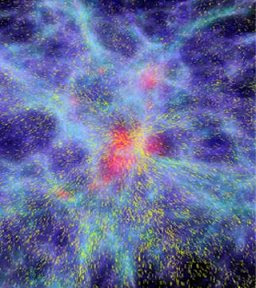Friday, October 31, 2008
Saturday, October 18, 2008
Friday, October 17, 2008
Monday, October 13, 2008
think about it
"I know that most men, including those at ease with problems of the greatest complexity, can seldom accept even the simplest and most obvious truth if it be such as would oblige them to admit the falsity of conclusions which they have delighted in explaining to colleagues, which they have proudly taught to others, and which they have woven, thread by thread, into the fabric of their lives." -Tolstoy
The most erroneous stories are those we think we know best — and therefore never scrutinize or question.
-Stephen Jay Gould
I can live with doubt and uncertainty and not knowing. I think it is much more interesting to live not knowing than to have answers that might be wrong.
- Richard Feynman
An easily understood, workable falsehood is more useful than a complex incomprehensible truth. - Thumb's Postulates
The most erroneous stories are those we think we know best — and therefore never scrutinize or question.
-Stephen Jay Gould
I can live with doubt and uncertainty and not knowing. I think it is much more interesting to live not knowing than to have answers that might be wrong.
- Richard Feynman
An easily understood, workable falsehood is more useful than a complex incomprehensible truth. - Thumb's Postulates
Thursday, October 2, 2008
Jupiter

This false color image of Jupiter combines a series of images taken over 20 minutes on Aug. 17 by the Multi- Conjugate Adaptive Optics Demonstrator (MAD) prototype instrument mounted on ESO's Very Large Telescope. The image sharpening corresponds to seeing details about 300 kilometers wide on the surface of the giant planet. The observations were done at infrared wavelengths where absorption due to hydrogen and methane is strong. This absorption means that light can be reflected back only from high-altitude hazes, and not from deeper clouds. These hazes lie in the very stable upper part of Jupiter's troposphere, where pressures are between 0.15 and 0.3 bar. Mixing is weak within this stable region, so tiny haze particles can survive for days to years, depending on their size and fall speed. Additionally, near the planet's poles, a higher stratospheric haze (light blue regions) is generated by interactions with particles trapped in Jupiter's intense magnetic field.
Credit: ESO & UC Berkeley/F. Marchis, M. Wong, E. Marchetti, P. Amico, S. Tordo
Credit: ESO & UC Berkeley/F. Marchis, M. Wong, E. Marchetti, P. Amico, S. Tordo
Wednesday, October 1, 2008
Sand Mandala
 The Sand Mandala (tib: kilkhor) is a Tibetan Buddhist tradition which symbolises the transitory nature of things. As part of Buddhist canon, all things material are seen as transitory. A sand mandala is an example of this, being that once it has been built and its accompanying ceremonies and viewing are finished, it is systematically destroyed.
The Sand Mandala (tib: kilkhor) is a Tibetan Buddhist tradition which symbolises the transitory nature of things. As part of Buddhist canon, all things material are seen as transitory. A sand mandala is an example of this, being that once it has been built and its accompanying ceremonies and viewing are finished, it is systematically destroyed.http://en.wikipedia.org/wiki/Sand_mandala
Subscribe to:
Comments (Atom)



